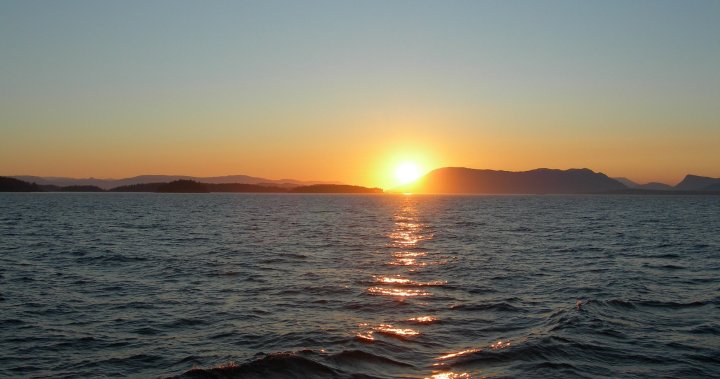
Heat wave nicknamed ‘the Blob’ may have affected Pacific Ocean’s carbon capture powers: UBC study
Global News
A massive ocean heatwave known as 'the Blob' may have affected the phytoplankton that play a role in helping the ocean capture climate-polluting carbon.
An extra-warm mass of water nicknamed ‘the Blob’ may have hurt the Pacific Ocean’s ability to capture climate-polluting greenhouse gas emissions, says a new study led by the University of British Columbia.
The ocean heat wave stretched more than 3,200 kilometres off the coast of North America between its first detection in 2013 and its dissipation in 2016.
Researchers at UBC now believe it may have temporarily dampened the Pacific’s “biological pump,” which shuttles carbon from the surface ocean into its depths, where it’s stored for thousands of years.
“The ocean is a huge global reservoir for atmospheric carbon dioxide,” Colleen Kellogg, a research scientist at the Hakai Institute and study co-author, explained in a UBC news release.
“If marine heatwaves reduce the capacity for carbon dioxide to be absorbed into the ocean, then this shrinks this reservoir and leaves more of this greenhouse gas in the atmosphere.”
The research, published last week in Nature Communications Biology, suggests abrupt changes in ocean temperature affect more than just large marine life, but also the phytoplankton whose larger cells impact the ocean’s ability to act as a carbon sink.
The large-scale study was conducted by Canadian researchers, European researchers and the U.S. Department of Energy Joint Genome Institute.
The team examined seven years of DNA sequencing and oceanographic measurements from a buoy to chart how microbes and their communities were structured before the Blob — the most severe marine heat wave in recent history.





















 Run 3 Space | Play Space Running Game
Run 3 Space | Play Space Running Game Traffic Jam 3D | Online Racing Game
Traffic Jam 3D | Online Racing Game Duck Hunt | Play Old Classic Game
Duck Hunt | Play Old Classic Game











